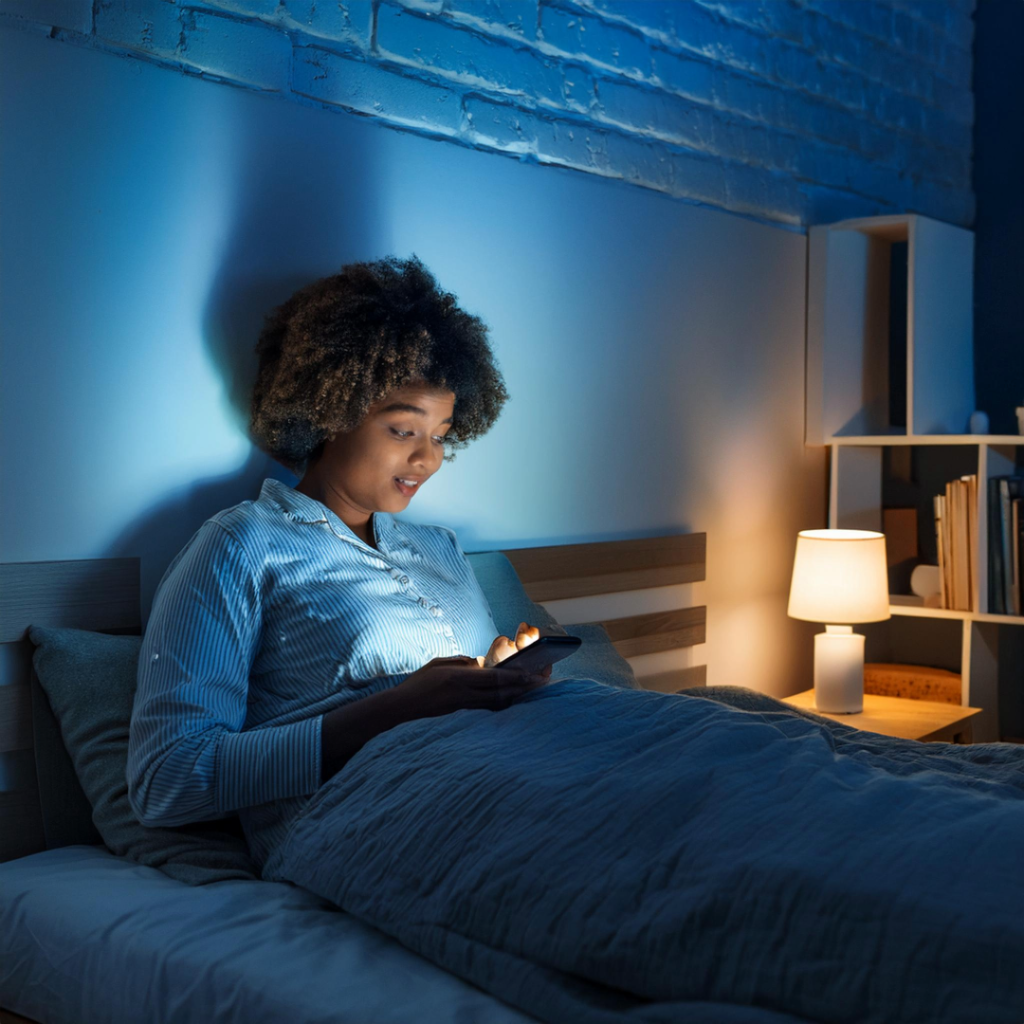How Blue Light Affects Your Sleep and What You Can Do About It
In today’s digital age, exposure to blue light has become a significant concern, particularly when it comes to sleep quality. Blue light, which is emitted by screens of smartphones, tablets, computers, and LED lights, has been linked to various sleep disturbances. Understanding how blue light impacts your sleep can empower you to make better choices for your nighttime routine and improve your overall well-being.

What Is Blue Light?
Blue light is a high-energy visible light with a wavelength of about 400 to 490 nanometers. It is naturally present in sunlight, helping regulate our circadian rhythms—the internal clock that dictates our sleep-wake cycle. However, with the rise of technology, artificial sources of blue light have proliferated, leading to increased exposure, especially in the evening.
How Blue Light Affects Sleep
Disruption of Melatonin Production
One of the most significant effects of blue light on sleep is its ability to inhibit the production of melatonin, the hormone responsible for regulating sleep. Exposure to blue light in the evening can delay the release of melatonin, making it harder to fall asleep and maintain a restful night.
Alteration of Circadian Rhythms
Blue light exposure, particularly at night, can disrupt your circadian rhythms. This disruption may lead to a misalignment between your internal clock and the natural light-dark cycle, causing sleep disorders and increasing the risk of chronic health conditions.
Decreased Sleep Quality
Studies have shown that increased exposure to blue light is associated with poorer sleep quality. People who use electronic devices close to bedtime often experience fragmented sleep and reduced time spent in deep sleep, which is essential for physical and mental restoration.
Impact on Mental Health
Poor sleep due to blue light exposure can have a cascading effect on mental health. Insufficient sleep is linked to increased stress, anxiety, and depression, creating a vicious cycle that can be difficult to break.
What You Can Do About It
Fortunately, there are several effective strategies to minimize the impact of blue light on your sleep:
Limit Screen Time Before Bed
Aim to avoid screens for at least one hour before bedtime. Instead, engage in relaxing activities such as reading a book, practicing meditation, or taking a warm bath to prepare your body for sleep.
Use Blue Light Filters
Many devices now come with built-in blue light filters or “night mode” settings. Enable these features in the evening to reduce blue light exposure. Additionally, consider using apps or software that automatically adjust your screen’s color temperature based on the time of day.
Invest in Blue Light Blocking Glasses
Wearing blue light blocking glasses in the evening can help reduce the amount of blue light reaching your eyes. These glasses filter out blue light, allowing your body to produce melatonin more naturally.
Create a Sleep-Friendly Environment
Optimize your sleep environment by keeping the bedroom dark and cool. Use blackout curtains to block out light, and consider using a sleep mask if needed. Dimming the lights in your home as bedtime approaches can also signal to your body that it’s time to wind down.
Practice Good Sleep Hygiene
Establish a consistent sleep routine by going to bed and waking up at the same time each day. This helps regulate your internal clock and can improve sleep quality over time. Incorporate relaxation techniques like deep breathing or gentle yoga before bed to help signal to your body that it’s time to sleep.
Seek Natural Light During the Day
To balance your exposure to blue light, make an effort to get plenty of natural light during the day. Spending time outdoors in natural sunlight can help regulate your circadian rhythms, improving your sleep quality at night.
Conclusion
Understanding how blue light affects your sleep is essential for optimizing your nighttime routine and promoting overall health. By implementing practical strategies to reduce blue light exposure, you can enhance your sleep quality and enjoy the many benefits of restful nights. As we navigate an increasingly digital world, making small adjustments to our habits can lead to significant improvements in our sleep and well-being.
Newsletter Sign Up
Join our community to receive exclusive updates, sleep tips, and special offers directly in your inbox. Stay informed and be the first to know about our latest products and promotions.

Contact Us
- 9/1, Ashokapuram, Industrial Suburb, Yeshwanthpur, Bengaluru-560022, India
-
care@restolex.com
Orders@restolex.com
Support@restolex.com -
+91-8750054466
+91-8123018558
